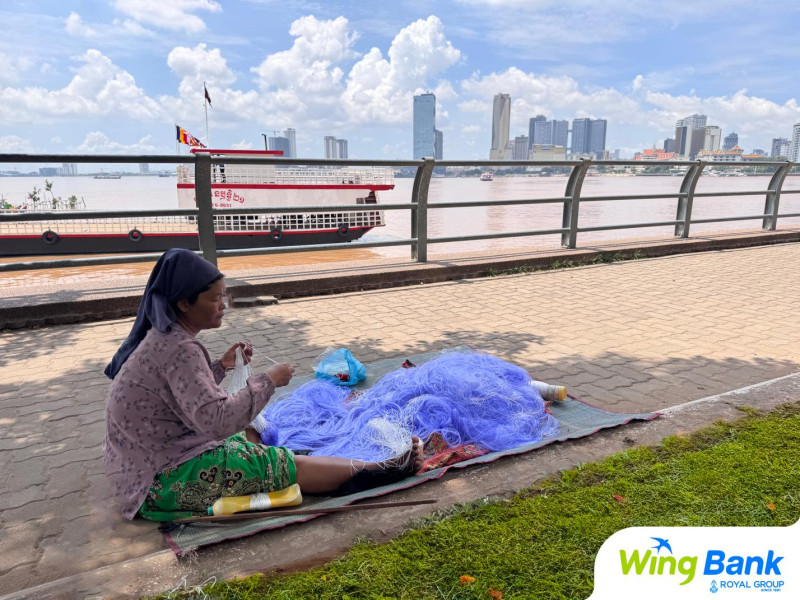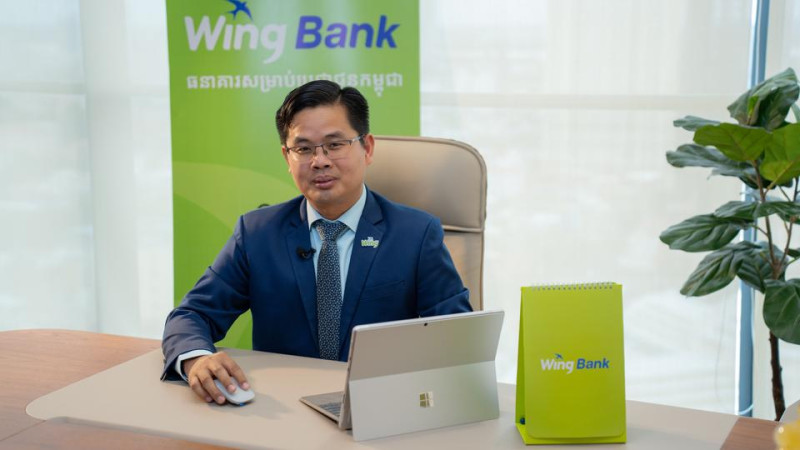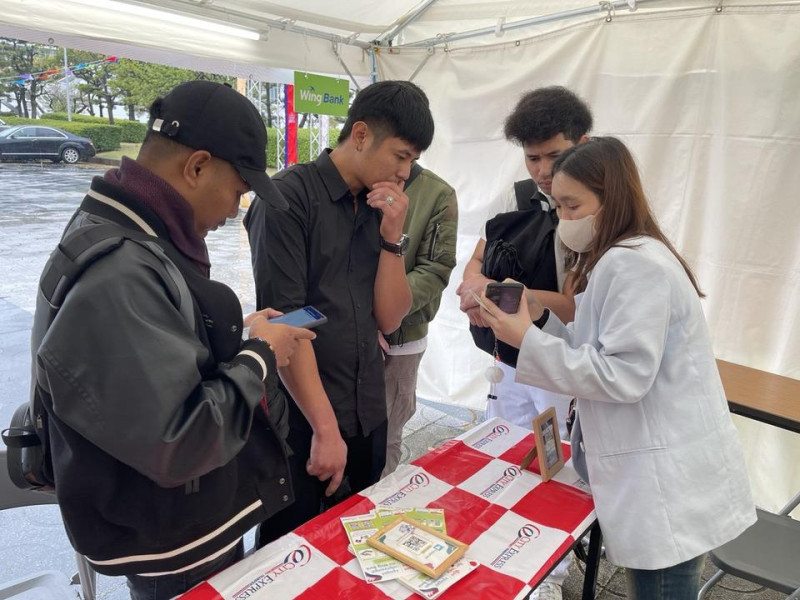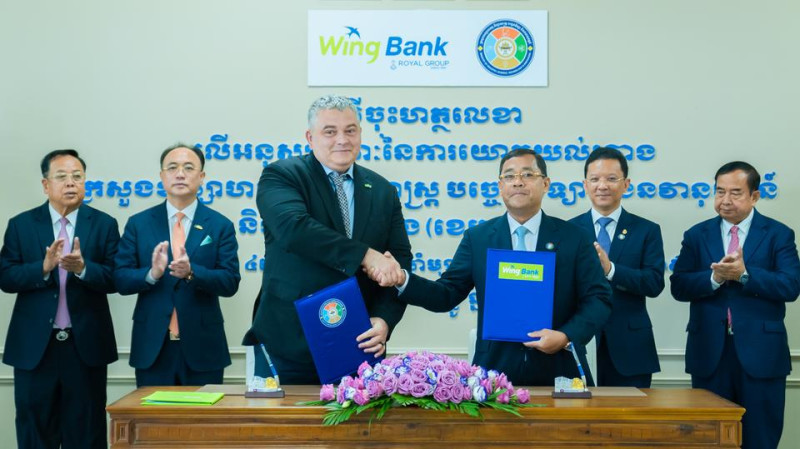
Women entrepreneurs say they work to the bone yet are not able to own a proper home or expand their business. Life is just hand-to-mouth most times as they wish for better days ahead
Mork Khorn, a street vendor, sells soup noodles and porridge from a mobile cart with her husband. They rent a house in Phnom Penh where they live with their daughter.
Working 20 hours a day in two shifts, she earns just enough to survive, though her family still struggles with poverty and lacks financial stability.
Khorn first moved from her hometown in Kampuchea Krom to Phnom Penh in the early 2000s to make a living selling food. Over the years, she has sold various items, including balut and porridge, which she carries by balancing them on a wooden pole across her shoulders.
She admitted that she earns just enough to survive daily, but not enough to fund an expansion or improvement, and “certainly not enough to afford a proper home”.
“The remorque and soup pots were given by my mother, who is old,” Khorn said, adding that if anyone offered her a loan right now, she would “gladly accept it”. She urgently needs money to repair her remorque, which is old and has a broken mirror.
Although her livelihood is unstable, Khorn said she cannot take a loan from a bank or microfinance institution as she does not own a house or land to use as collateral, borrowing from her relatives instead.
“Thinking about taking a house loan is out of the question. I can't even get a loan for a new motorcycle,” she added.
Even though women entrepreneurs run various businesses, they often face similar challenges, plus the lack of financial literacy means they are unsure how to manage their finances.
Am Nash, a 44-year-old Muslim woman, works with her husband as a fisherfolk on Tonle Sap, where their boat also doubles up as their home.
Nash has been fishing on the Tonle Sap for almost 30 years, continuing the work of her late parents, who also spent their entire lives as fisherfolk, leaving no property for them.
Her family’s finances are not very much different from Khorn’s. Some days she earns more, but during the rainy season, the income drops drastically—to zero sometimes. “When the water level rises, my husband and I fish the whole night without sleep,” she said.
October to June are the most profitable months, while July to September—when the water rises and fish disappear—her family must cut expenses and rely on their two daughters who work in a factory to survive.
On good days, Nash earns 80,000 to 100,000 riel (approximately $20 to $25), but during low season her income drops to about 10,000 riel ($2.50), hardly able to cover her family’s daily expenses for four people, which amounts to around 50,000 riels.
Having been born into a fisherman family, Nash had always dreamed of having a job that would allow her to live without fear of storms and big waves. But without capital, she has no way to start. “I don’t even have a motorcycle. If I did, I would drive to the market and sell something or sell the fish my husband and I catch,” she said.
But owning a home is a dream Nash knows she could never fulfil. Whatever money she earns is saved for the low season or used to repair their boat and engine.
As she worked on her fishing net, she asked sadly, “How can any microfinance institution give me a loan when I have nothing? Living along the river in front of Sokha Hotel, I’ve never had a bank approach me or other families here to offer a loan to expand our business.”
New Financial Tools for a Changing Cambodia
Since late 2022, as Cambodia has been rebuilding its economy after the pandemic, financial institutions have introduced new tools to help small entrepreneurs like Khorn and Nash access credit and savings options.
Wing Bank Digital Loan was designed for individuals and small businesses who need quick financial support but lack collateral or traditional banking access.
“We understand the challenges facing small business owners and families,” said Bunthe Hor, Deputy CEO of Wing Bank. “Our goal is to help them expand their businesses, improve their livelihood, and avoid informal lenders who charge extremely high interest rates.”
The loan process is entirely digital customers apply via the Wing Bank App, receive instant credit decisions powered by AI and machine learning, and get funds disbursed immediately upon approval. No collateral, no paperwork, and no long waits—loan requests can be made anytime, anywhere.
Wing Digital Loan amounts start at just $3 and can go up to $50,000, with repayment terms of up to three years. Loan limits increase as customers build a financial history through payments, transfers, and savings on the app.
Customers who frequently use Wing Bank’s products and services—such as phone top-ups, scan-to-pay, bill payments, and more—gradually build their credit score. The more they engage with Wing Bank’s ecosystem, the higher their eligibility for a digital loan. Through consistent usage, customers establish a reliable payment history and strengthen their credit profile, increasing their chances of loan approval.
In just the first eight months of 2025, approximately 230,000 Cambodians turned to Wing Digital Loan to meet urgent financial needs, improve their livelihoods, and pursue their business goals.
Saving for a Better Future
For those looking to set aside their hard-earned money for emergencies or future goals, Wing Bank offers a smart solution through Save for Goal. This flexible savings feature allows customers to open accounts individually or as a group of up to 10 people, helping them reach their financial goals faster.
Customers can choose to deposit daily, weekly, or monthly—whichever suits their lifestyle.Interest rates range from 1.50% to 5.00% annually, with no fees and no restrictions on withdrawals.
“Save for Goal helps people set aside money for their dreams, whether it’s a home, education, or business expansion,” said Bunthe. “We aim to foster a stronger saving culture within the community, enabling individuals to invest in their future with greater confidence.”
Both financial tools—Digital Loan and Save for Goal—aim to give families like Khorn’s and Nash’s a chance to break the cycle of living hand-to-mouth and build a more secure future.



